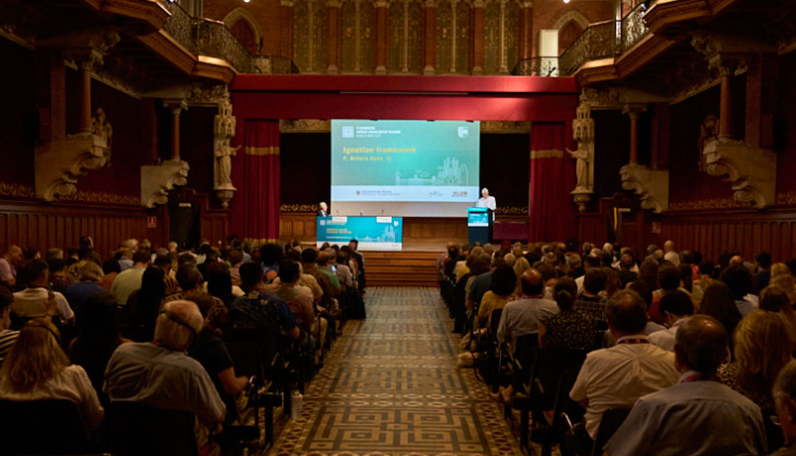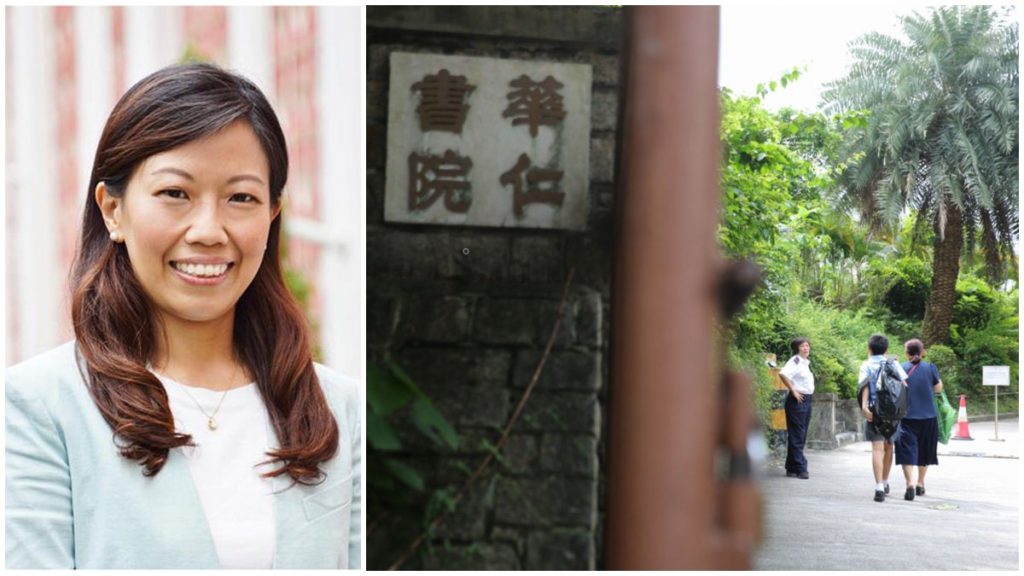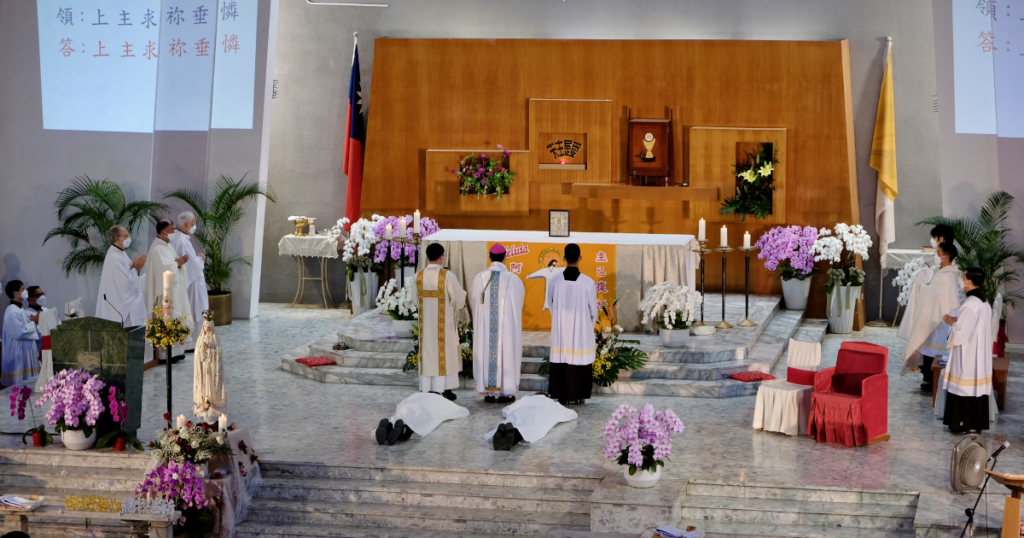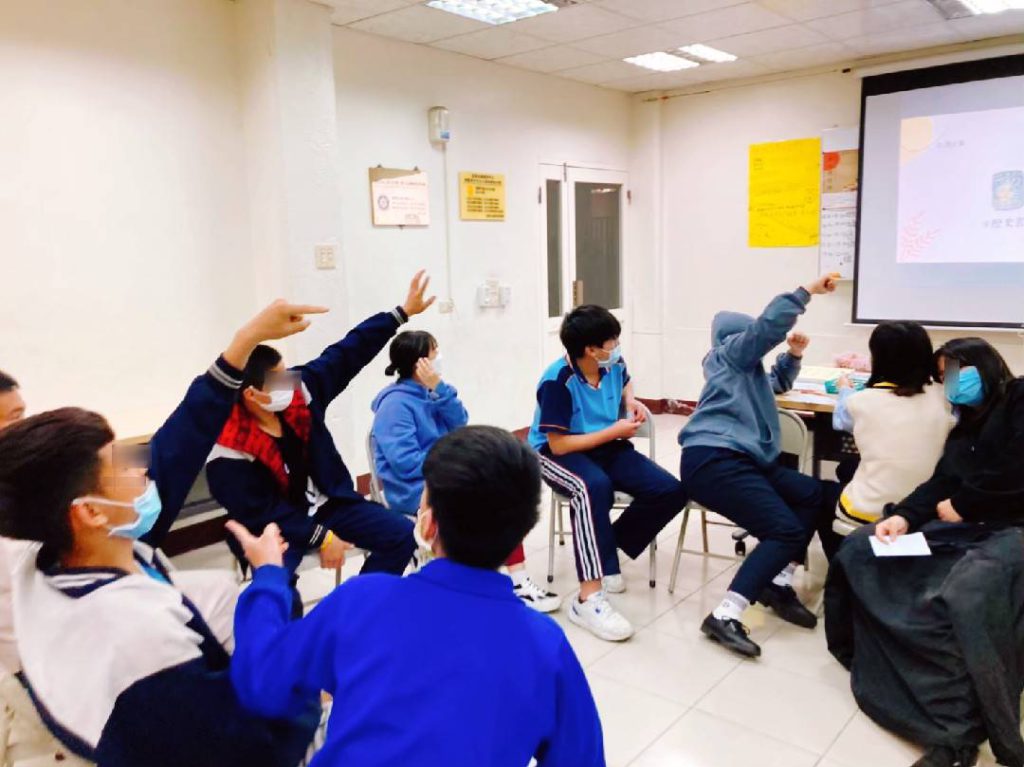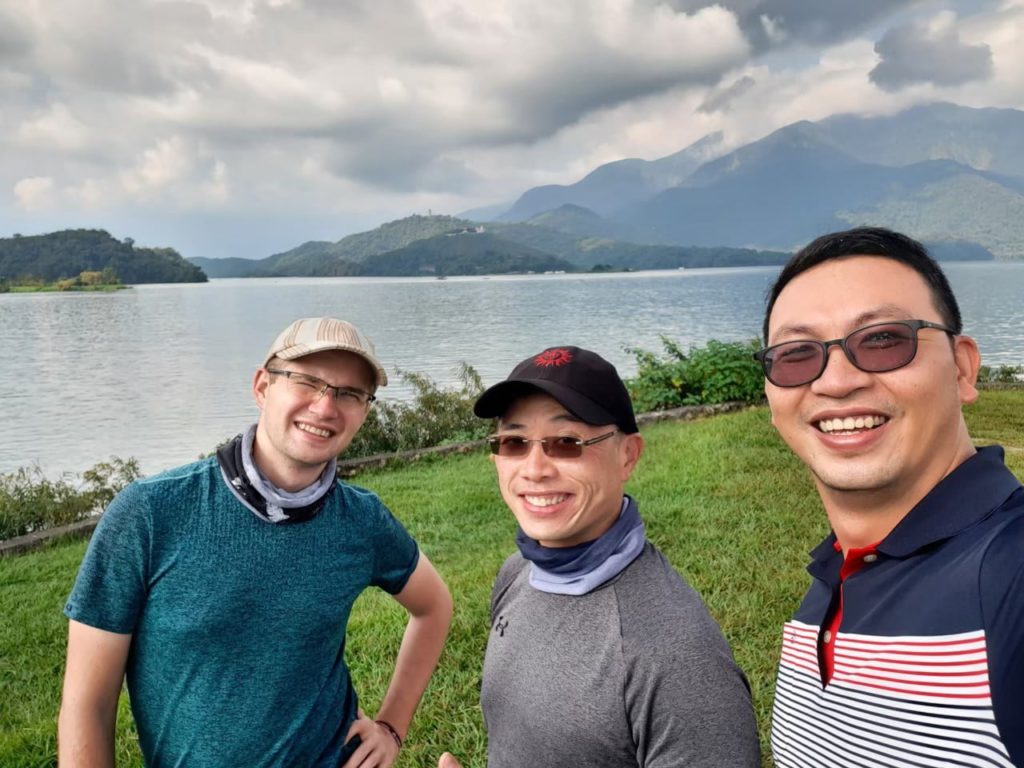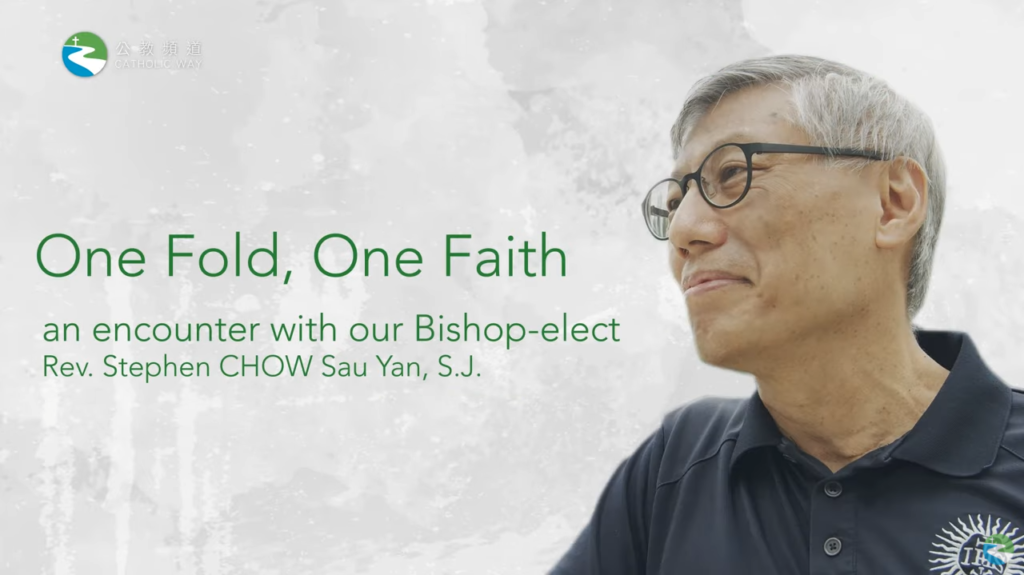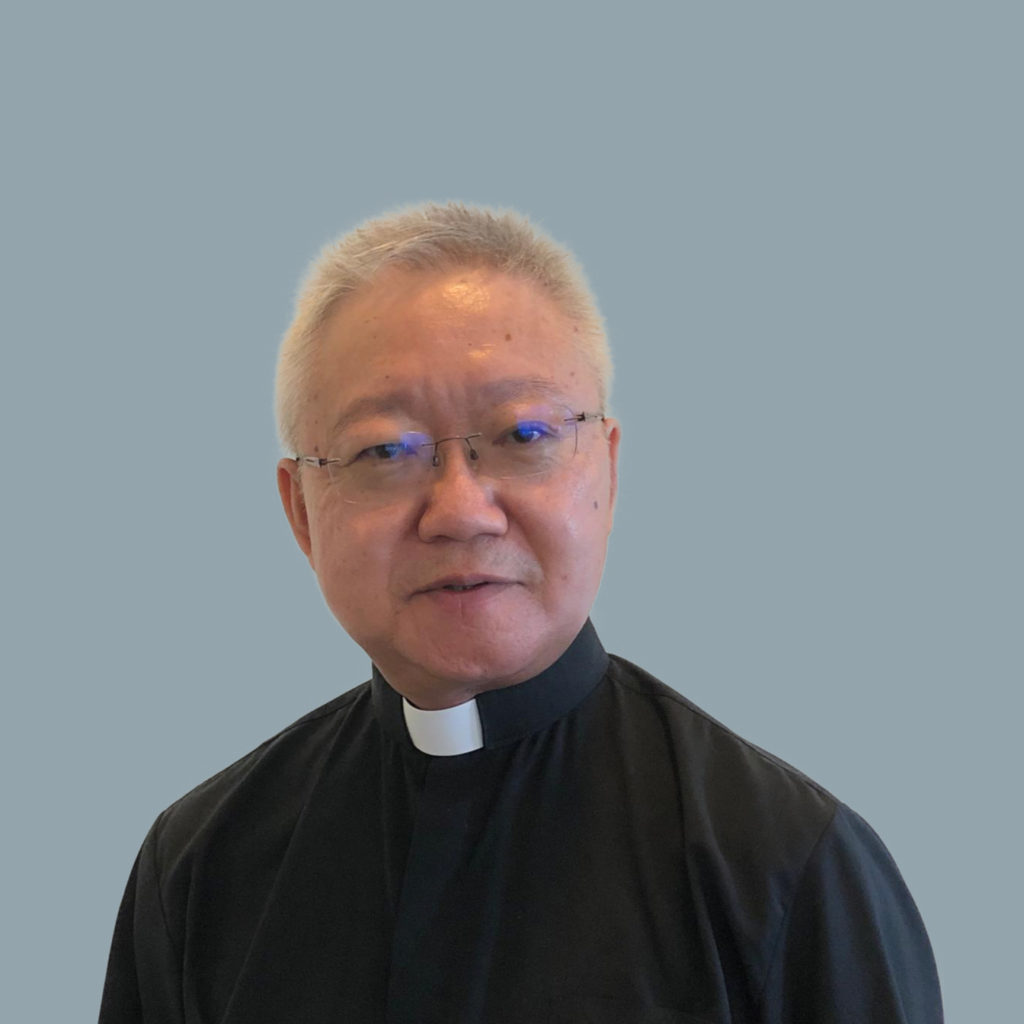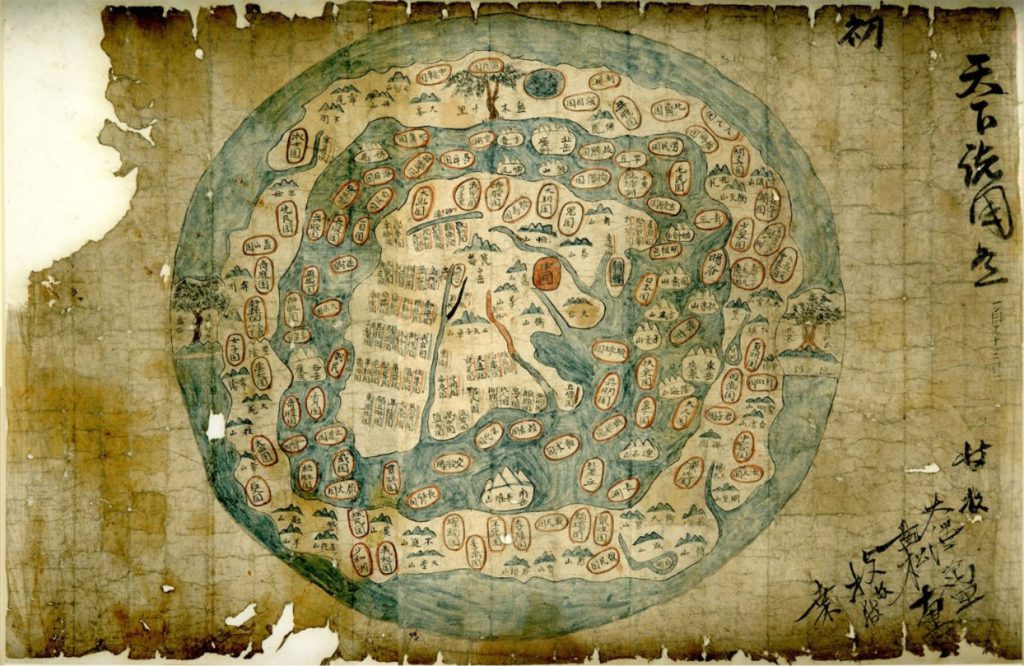A culture of collaboration to become persons with and for others
On Thursday, 14 July, Fr. General Arturo Sosa SJ spoke during the X Congress of the World Union of Jesuit Alumni (WUJA) at the San Ignacio Sarria College in Barcelona.
During his talk, Fr. Sosa made an invitation to continue the conversation initiated by Fr. General Arrupe almost 50 years ago with the Jesuit alumni, where he invited them to become persons for and with others. This invitation is still valid today in our current context and Fr. Sosa wants to expand it, so that Jesuit alumni become true partners in the mission of reconciliation and justice that the Church has entrusted to the Society of Jesus.
Fr. Sosa is aware that this invitation will require that both alumni and the Society of Jesus foster a culture of collaboration for a shared mission, based on the gifts that God has given to each one of us and under the guide of the Universal Apostolic Preferences. Although it is true that collaboration in the mission has deepened in recent years with the contributions of many lay persons who carry out the works of the Society of Jesus, this invitation from Fr. General is a new and challenging step in the relationship between the Society of Jesus and its alumni.
Appointment of New School Principal
The School Sponsoring Body of Wah Yan College, Kowloon has announced today the appointment of Ms Cecilia CHOW as the School Principal with effect from 1 September 2022. Ms CHOW succeeds Principal CHUNG Warren, who will retire after being at the helm of his alma mater for nine years, serving with great devotion and dedication.
Please click here for details:
https://wyk.edu.hk/news/appointment-of-new-school-principal/
Deacons in the service of the Church
The Chinese Province of the Society of Jesus celebrated the ordination to the diaconate of two scholastics, Philip Fung Hon-chung SJ and Przemyslaw Mąk SJ, on 7 May at the Holy Family Church in Taipei. Due to the Covid-19 pandemic, the organising committee offered two options for people to participate in the liturgical celebration: in-person or through the livestream. Despite the challenges, the faithful, friends, and classmates of the two ordinands filled the church with enthusiasm.
The Archbishop of Taipei, Most Rev Thomas Chung, was initially scheduled to preside at the ordination. However, due to recent cases of infection at the Taipei Archdiocesan chancery office, Most Rev John Baptist Lee, the Bishop of Hsinchu Diocese and chairperson of the Chinese Regional Bishops’ Conference, presided over the liturgy instead. The Mass was also joined by more than 30 concelebrants.
Bishop Lee exhorted the two ordinands to immerse themselves in works of charity, deepen their spiritual life, and be fervent in evangelization. Later, two Jesuit priests, Fr Jaime Valenciano and Fr Barry Martinson vested the new deacons respectively with the stole and dalmatic.
Towards the end of the liturgy, the Socius of the Chinese Province, Fr Luciano Morra SJ, gave the thanksgiving speech on behalf of the Provincial, Fr Stephen Tong SJ, who is currently in Hong Kong and so was unable to attend the celebration due to travel restrictions from the pandemic. Fr Morra read Father Provincial’s letter in which he specifically thanked the Bishop for ordaining our two Jesuit brothers to the diaconate as servants of the Church.
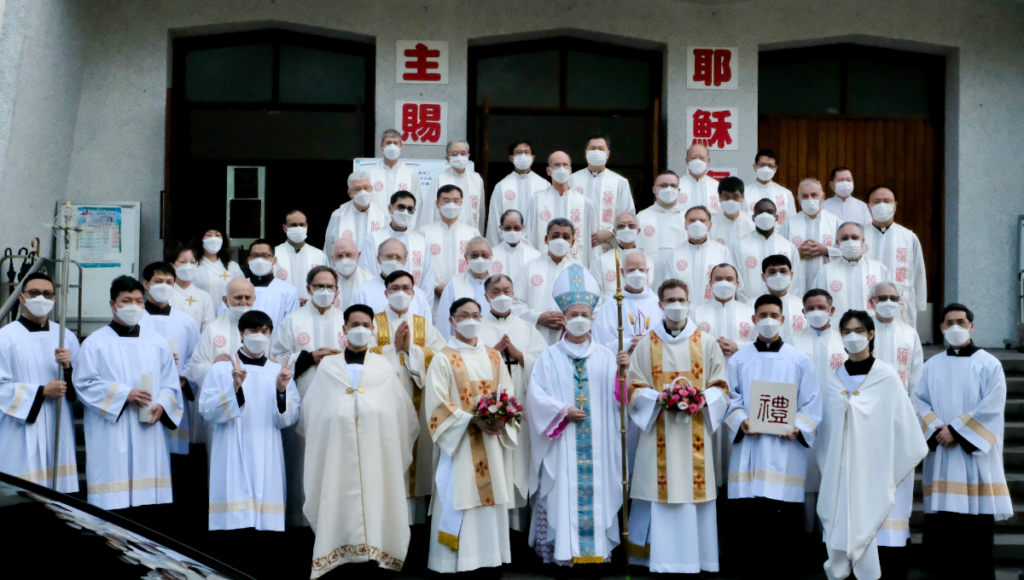
In his letter, Fr Tong also mentioned the varied backgrounds of the new deacons: Philip is a neurologist while Przemyslaw is a ballroom dancer, yet the same Lord called them both and placed them together. This shows forth the diverse and international character of the Society of Jesus. Father Provincial sincerely hopes that the new deacons will reflect the image of God indefatigably in all circumstances.
Fr Tong also described the role and essence of deacons in the early Church. He encouraged the new deacons to concretely embody the spirit of Jesus expressed in his words: “I did not come to be served, but to serve,” He further exhorted them to live out the motto of the Jesuits: “For the Greater Glory of God” standing firmly on the foundation of the Holy Church.
Finally, Fr Tong expressed his gratitude for the generosity of the parents of the deacons. He hopes the two deacons will grow joyfully in their vocation.
At the end of liturgy, the new deacons gave thanksgiving speeches, each in their mother tongue, Cantonese and Polish, respectively. They expressed gratitude for the support of family and friends. Since this ordination day was also the Feast of Our Lady of China, the two deacons venerated the Holy Mother with a bouquet of flowers while singing and dancing to the Magnificat. In so doing they drew this heartwarming celebration to a perfect end.
Companions of aboriginal youth towards a hope-filled future
*Xiaomei, holding a baby in her arms, shifts in her seat. The social worker looks at the certificates on the wall and asks: “Are these all yours?” Xiaomei comforts her infant daughter while stopping a quarrel between her two younger sisters from escalating. She says softly: “Yes! Almost all of them. This one is from a school exam; this is an attendance award; and that one is when I won a running contest! Look, those trophies in the cabinet are also mine. I should have won the championship in the boxing event, but because my teammates were too noisy, the referee called a foul, and I became the runner-up.” “Weren’t you sad at that time?” asks the social worker. Xiaomei looks fondly at the baby in her arms and replies: “It doesn’t matter. I think runner-up is also very good!”
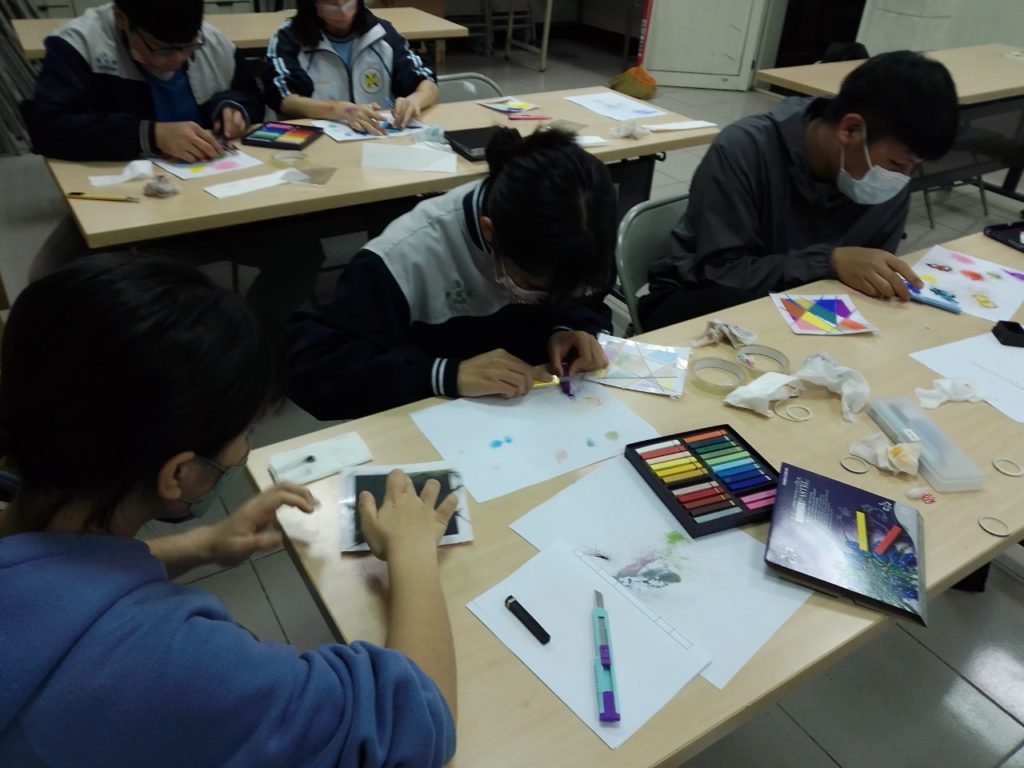
Xiaomei became a mother when she was not yet 17 years old, and the child’s father had just turned 18. Both of them are aboriginal people, and both come from problematic families, with their parents unable to give them the proper support they need. Xiaomei had to stop school to take care of the baby, while the child’s father worked odd jobs at the construction site to support them. As a young mother, Xiaomei lives a different life than women her age. While students complain about their exam being too difficult, Xiaomei worries about the baby in her arms. She has grown mature and thin from her life experience.
The dilemma of social service organisations is that they want to inform the public about the plight of the people in their care so resources could come in, but at the same time, they must protect the privacy of these people. The Rerum Novarum Center in Taipei has been engaged in aboriginal youth training and service work in Zhudong, Hsinchu County for many years. Since aboriginal people have their own distinct culture, they often have to struggle against systemic discrimination and exclusion. Their experience is different from the experience of Han Chinese, the dominant ethnic group in Taiwan, who from childhood learn how to interact with mainstream Taiwanese society.
People also have general impressions about aboriginal people, such as their happy disposition, and their interesting way of speaking. These impressions may sound delightful, however, the truth is often very cruel, especially when they enter the educational system. Aboriginal children cannot compete with the rest of the students. The content of the course is relatively unfamiliar to them, and the contents of their textbooks are very different from their life experiences. Their lessons do not resonate with them, let alone arouse their interest.
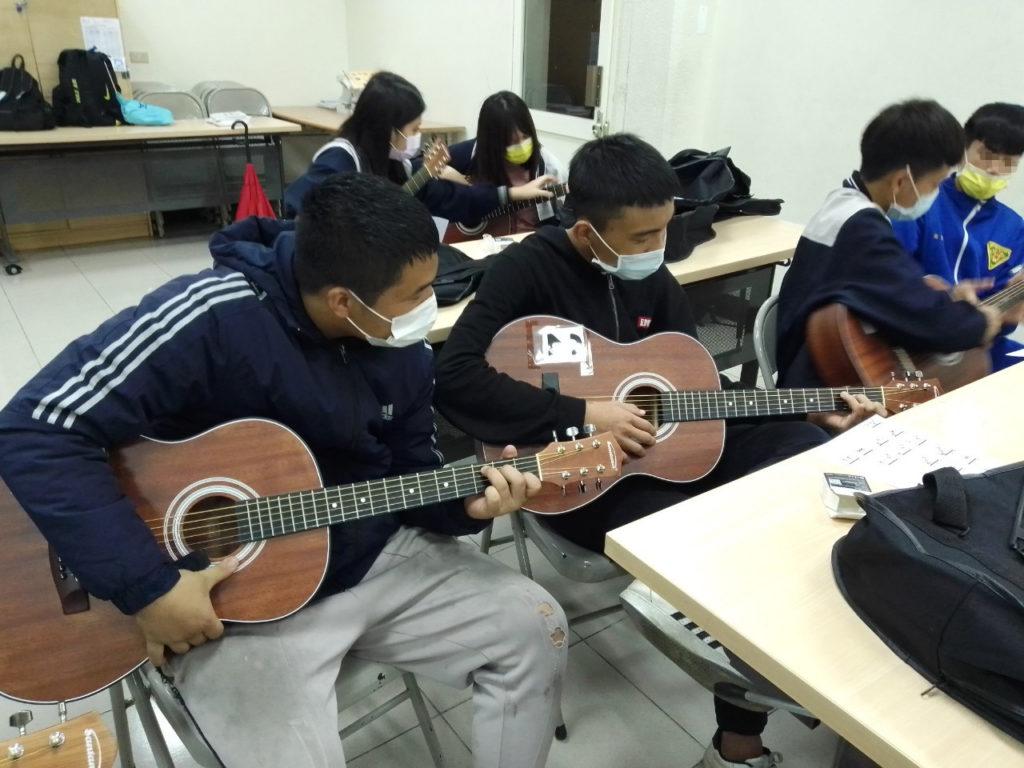
People hope that disadvantaged groups can rise above their status in life through education, and the public is quick to laud special cases wherein an aboriginal person achieved success through education, but the reality is that most aboriginal youth are limited by their resources and are challenged by the system. In the face of mainstream education, what we see in them is fear rather than hope, and what may constitute as deviant behaviours in the eyes of the public, such as dropping out of school, joining gangs, or even having children out of wedlock. What results is more condemnation and disappointment than understanding of their situation.
Aboriginal students desire a sense of achievement and belonging. Thus, Rerum Novarum’s after-school companionship and learning services include learning resources from different networks, as well as a dream realisation plan for aboriginal teenagers. Being able to see their own value and perceive different paths for success that are not limited to the framework of mainstream society help to make them feel more free to choose the courses they want to take up. This enables them to develop more interests and abilities, express themselves, and gain a sense of achievement through enhanced skills and knowledge.
“Actually, I used to have a lot of dreams. I wanted to be a track and field coach, and a boxer. I used to run really fast,” muses Xiaomei, while watching her younger sisters play with a basketball in a dimly lit street. “You can still do it now!” says the social worker. Xiaomei smiles: “I can’t help it. I have to take care of my child now. And after giving birth, I can’t run as fast anymore.”
Creating a fair society for disadvantaged children is a difficult challenge, and something that cannot be done right away. But there are efforts that can be made to prevent the same thing that happened to Xiaomei from happening to more young people, and to provide them more understanding and support. The Rerum Novarum Center is grateful to the many people who support the Aboriginal Youth Development and Dream Project, which not only brings hope to children, but also gives the staff great motivation to continue to work hard. [Rerum Novarum Center]
Finding God in the midst of hard work
The Arrupe Month is a time of grace for Jesuit scholastics. In addition to the eight-day retreat, participants have the opportunity to meet different people and listen to their vocation stories, to discuss a wide range of topics, from Ignatian Spirituality to the issues of the Church, from the longing of the faithful to the experience of waiting for a mission. This rich exchange is very helpful for scholastics in reflecting on our vocation. They help us to pray and go deeper into our own spiritual experiences.
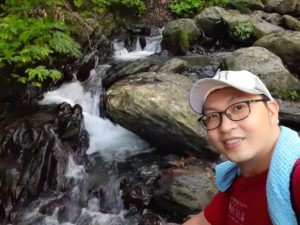 In the evenings, we take turns sharing our vocation stories through prayer and reflection. This brought me a greater sense of understanding and sympathy. It also gave me the opportunity to know myself better and reflect on how God has led me to consecrated life these last 10 years.
In the evenings, we take turns sharing our vocation stories through prayer and reflection. This brought me a greater sense of understanding and sympathy. It also gave me the opportunity to know myself better and reflect on how God has led me to consecrated life these last 10 years.
Ten years is not a short time and a lot has happened, but if I had to describe it in one phrase, it would be: Finding God in the midst of hard work.
My Provincial Superior once asked me: “Where is the easiest situation for you to find God?”
At that time, I answered: “In serving the poor and the suffering.”
This answer is real because I have felt Him through serving lepers and the mentally ill, and I have learned a lot from the poor and those in need, who have not only influenced me to know myself, but have also given me the opportunity to experience God’s love.
God’s teachings and companionship flow abundantly, and I feel God’s greatness and generosity if I open my heart and mind to be in union with Him. He continues to lead me to different people and experiences to make me realise that in the midst of suffering, sickness, and hardship, God is closer to the people. There is no need to fear or run away because we can rely on God’s strength to face and find meaning in difficulties.
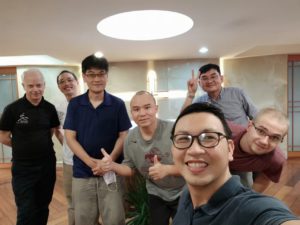 During the Arrupe Month I had time to slowly reflect on my difficult experiences, and I was filled with many wonderful feelings. In particular, these few experiences stand out.
During the Arrupe Month I had time to slowly reflect on my difficult experiences, and I was filled with many wonderful feelings. In particular, these few experiences stand out.
I once worked in a cement factory. I was assigned in different departments, but what I remember most is the time I spent in the basement doing packaging work, standing for eight hours a day. It was really challenging for me. I lost four to five kilograms, but it was a most rewarding moment when I felt the presence of God. Working in an environment where I could not get enough food, clothing, and water was the closest I felt to God.
I also spent time in a psychiatric centre helping care for about 200 patients. I was physically and mentally stretched to my limit, but it was there that I saw God’s miracles in the life of my patients.
Currently I am studying theology, and there are many hard parts in being a student. From my experience, it seems that the more demanding a teacher is and the more challenging the exams are, the more fruitful the class becomes.
In Taiwan, I often hear the phrase “you’ve worked hard” to encourage and comfort others, which is a good habit. For me though, this phrase has taken on a different meaning, that is, “the opportunity to be with God”. I consider it a blessing that gives me much strength to face difficult and hard things.
Scholastic Peter Phạm Khánh Linh SJ from Vietnam is a third year theology student at the Fu Jen Faculty of Theology of St Robert Bellarmine in New Taipei City, Taiwan. The Arrupe Month is a period of reflection and discussion that prepares Jesuit scholastics for ordination.
The brief address of Bishop Stephen Chow Sau Yan, S.J.
The Most Reverend Stephen Chow Sau Yan,S.J. was installed as the 9th Bishop of Hong Kong on 4 December 2021 at the Cathedral of the Immaculate Conception. The whole Diocese welcomes our new bishop and we earnestly request the faithful to keep praying for the Diocese of Hong Kong. Full text of the brief address of Bishop Stephen Chow Sau Yan, S.J. as below : Continue reading "The brief address of Bishop Stephen Chow Sau Yan, S.J."
One Fold, One Faith┃Encounter with our Bishop-elect
Initiated by Rev. Stephen CHOW Sau Yan, S.J., this video speaks to the multinational communities of the Catholic Church in Hong Kong, encouraging them to feel included, and to walk together on the path of “Unity in Plurality”.
Fr. General has appointed Fr. Stephen Tong, to be the next Provincial
Dear Brothers and Partners in Mission,
I have been informed that Fr. General has appointed Fr. Stephen Tong, S.J. to be the next Provincial of the Chinese Province. After consulting with Fr. Tong, he will assume his new mission on 1st November 2021. Continue reading “Fr. General has appointed Fr. Stephen Tong, to be the next Provincial”
Ricci Institute for Chinese-Western Cultural History coming to Boston College
The internationally acclaimed Ricci Institute for Chinese-Western Cultural History, a research center for the study of Chinese-Western cultural exchange, will move to Boston College from the University of San Francisco, where it has been located since its founding in 1984. Continue reading “Ricci Institute for Chinese-Western Cultural History coming to Boston College”

